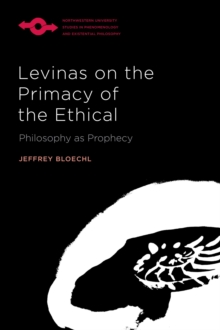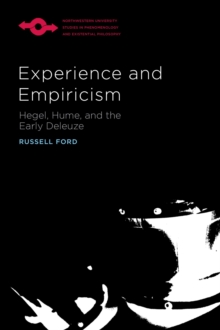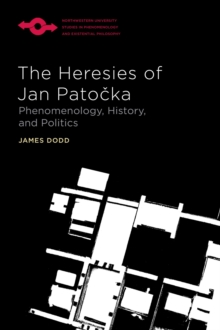
God as Otherwise Than Being : Towards a Semantics of the Gift Paperback / softback
by Calvin O. Schrag
Part of the Studies in Phenomenology and Existential Philosophy series
Paperback / softback
Description
Speaking as one of the founders of American Continental philosophy, Calvin O.
Schrag offers here a discussion of a complex question: whether and how the ""death"" of the god conceived as a ""highest being"" in Western and modern traditions might open a new space within which to rethink God in terms of a ""gift"" or ""giving"" that would stand beyond the usual spate of metaphysical categories.
Schrag begins by elucidating traditional theistic conceptions of God in terms of Being and explains how those conceptions inevitably give way to atheism.
Moving beyond atheism and theism alike, he explores alternative understandings of God in terms of ""the gift"" by turning first from ontology to ethics, and then from ethics toward an understanding of the gift as beyond any economy of exchange and return.
Thus understood, the gift becomes the content and measure o fthe fitting response within the corridors of civil society.
Throughout, Schrag draws with grace, ease and precision upon the history of Western metaphysics, from Plato and Aristotle to Nietzsche and Heidegger.
Most important to his central question of God as ""otherwise than Being"", however, are such influential post-Heideggerian thinkers as Jean-Luc Marion, Jacques Derrida and Emmanuel Levinas.
Schrag's inquiry engages these thinkers at a serious level and also expands recent discussions of the god ""beyond"" or ""otherwise than"" Being by relating them to the work of figures hitherto overlooked or underplayed, most notably Paul Tillich.
Seeking a notion of God compatible with the postmodern perspective, Schrag's work stands as a helpful guide, providing an insight into an often impenetrable philosophical and theological enigma.
Information
-
Available to Order - This title is available to order, with delivery expected within 2 weeks
- Format:Paperback / softback
- Pages:144 pages
- Publisher:Northwestern University Press
- Publication Date:30/06/2002
- Category:
- ISBN:9780810119239
Other Formats
- Hardback from £80.00
Information
-
Available to Order - This title is available to order, with delivery expected within 2 weeks
- Format:Paperback / softback
- Pages:144 pages
- Publisher:Northwestern University Press
- Publication Date:30/06/2002
- Category:
- ISBN:9780810119239










